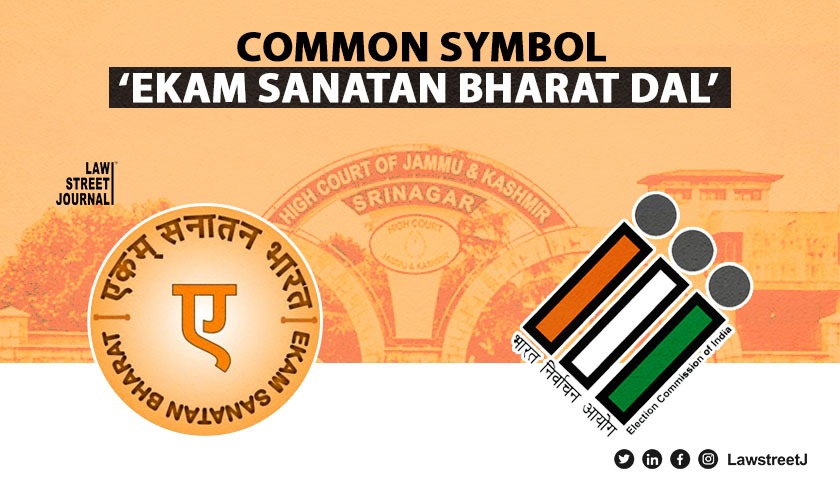In a significant ruling, the Jammu and Kashmir and Ladakh High Court recently held that the mere fact of relatives' involvement in anti-national activities in the past cannot be used to deny individuals government contracts for public works. The court categorically stated that such tenuous grounds relating to familial associations from decades ago cannot deprive citizens of their constitutionally guaranteed right to earn a livelihood and carry on business or trade by executing government projects.
The petitioners can, by no stretch of reasoning, be penalized and deprived of their right to livelihood on the ground that one or more relatives of the petitioners had, in the past, indulged in anti-national activities, the court held.
The court further noted that any restriction on the fundamental right to practice any profession or carry on any trade or business under Article 19(1)(g) of the Constitution can only be imposed in accordance with Article 19(6), and that such restriction must be reasonable, in the public interest, and imposed by law, not through mere executive diktats.
The court also observed that the government had issued rehabilitation policies aimed at the mainstream integration of misguided youth and others who had strayed into militancy but later realized their mistakes. However, the impugned communication by the Commissioner/Secretary of the Rural Development Department was a clear affront to these well-intentioned efforts towards restoring peace and normalcy in J&K.
FACTS:
The petitioners, registered contractors engaged in executing public works for the government, challenged a communication issued by the Commissioner/Secretary, Department of Rural Development and Panchayati Raj, directing authorities to take action against them and bar them from future contracts. This was based on a report by the Criminal Investigation Department stating the petitioners failed a security test as their relatives had been involved in subversive activities in the past.
ARGUMENTS:
The petitioners in the present case argued that no government authority, however high, can take away the right to livelihood and the right to do business or trade from the petitioners as it would infringe the fundamental rights guaranteed under Article 19(1)(g) and Article 21 of the Constitution of India. They further argued that the mere fact that some of their relatives were involved in subversive activities in the past cannot be grounds to penalize the petitioners, who have no criminal antecedents themselves. The character/antecedent verification done before granting them registration did not find anything adverse against the petitioners directly.
The Criminal Investigation Department (CID) argued that its role was limited to verifying the character and antecedents of the petitioners and submitting a report, further stating that follow-up action based on such reports, if any, was taken by the concerned government department and that the CID only had an assistive, not decisive, role in such matters.
Additionally, the Department of Rural Development and Panchayati Raj submitted that to bring fairness and transparency in awarding government contracts, it decided to exclude persons involved in anti-national activities or those with criminal antecedents. Although the petitioners themselves were not directly involved, the CID report indicated their close relatives had been active militants who had even crossed the LOC illegally to obtain training in arms and ammunition. Hence, they submitted that the impugned communication was issued to prevent such persons from entering into contracts with the department.
DECISION:
After hearing both parties, the court held that the impugned communication not only violates the fundamental right of the petitioners guaranteed under Article 19(1)(g) of the Constitution but also has the effect of depriving the petitioners of their right to livelihood implicit in Article 21 of the Constitution.
The impugned communication, which is in clear violation of Article 19(1)(g) and Article 21 of the Constitution of India, has put the petitioners to serious prejudice, it held.
It also held that the petitioners have not incurred any of the disqualifications under the Registration of Contracts Act, 1956, and the rules framed thereunder, and therefore hold valid certificates of registration issued by the competent authority. These certificates were issued after recording satisfaction about the eligibility and fulfillment of requisite conditions by the petitioners.
Furthermore, the court held that simply because one or more relatives of the petitioners were involved in anti-national activities in the early 90s or thereafter cannot be grounds to deprive the petitioners of their right to enter into contracts with the government for the execution of various public works.
In conclusion, the court, while allowing the petition, quashed the impugned notification and directed the Chief Secretary of the Union Territory of Jammu and Kashmir to initiate departmental action against the concerned Commissioner/Secretary of the Department of Rural Development and Panchayati Raj who issued the impugned communication.

![Mere involvement of relatives in anti national activities in the past can not be a ground to deny Govt contracts: J&K and Ladakh HC [Read Judgment]](/secure/uploads/2024/06/lj_3301_79dd6df6-5b62-4057-8762-d0e460af98e6.webp)


![Publicly slapping wife does not constitute outraging modesty: J&K HC [Read Order]](/secure/uploads/2024/02/lj_7549_husband-slapping-wife-publicly.webp)
![Jammu and Kashmir High Court Grants Bail To Gang Rape Accused, Emphasizes Presumption Of Innocence [Read Order]](/secure/uploads/2024/05/lj_6000_5007a767-4748-4bed-9dab-8fa14a4d262b.webp)






